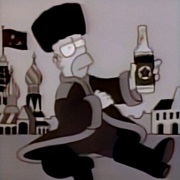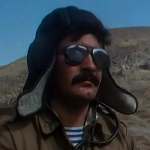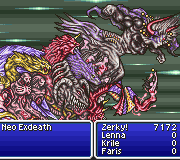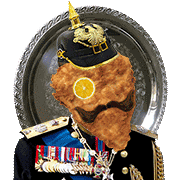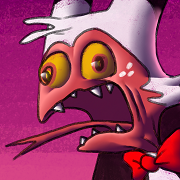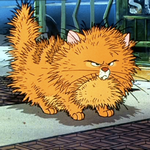|
I'm halfway through Robert K Massie's Peter the Great and it's a very enjoyable read for someone new to the subject He also has books on Catherine the Great and the Romanovs which I look forward to reading
|
|
|
|

|
| # ? Apr 20, 2024 05:23 |
|
I've read both the Alexander book and the Catherine book and second them. I've also read vol 1 of Stephen Kotkin's Stalin series and that's pretty good as well. Haven't read much Russia specific stuff outside of that that I would recommend, though.
Mantis42 fucked around with this message at 02:14 on Jan 4, 2021 |
|
|
|
Riasanovsky's A History of Russia seems to be the best general survey still. Kotkin's stuff on Stalin and the end of the cold war are good, for earlier stuff I have been recommended The Elusive Empire and Cartographies of Tsardom in the thread before, though I have finished neither. The maps in Cartographies are rad as hell tho.
|
|
|
|
Shiela Fitzpatrick's "Everyday Stalinism: Ordinary Life in Extraordinary Times: Soviet Russia in the 1930s" is a good look on what regular Soviets' lives were like under Stalin.
|
|
|
|
Minenfeld! posted:Would anyone be able to recommend some solid reads on Russian history? I'm trying to expand my bookshelf. I'm good with academic reads or lay. There've been some good suggestions in this thread before. Do you have any more specific interests, or just Russia in general?
|
|
|
|
vyelkin posted:Do you have any more specific interests, or just Russia in general? Russia post-Crimean war and up to and through the First World War. There was a book on the Russian wartime economy I wanted to pick up but I've since forgotten the author and title. The thread previously had also recommended "Tales of Imperial Russia" which was an exploration of Imperial Russia through Witte's unpublished memoirs which was excellent. Thank you for all the suggestions.
|
|
|
|
Minenfeld! posted:Russia post-Crimean war and up to and through the First World War. There was a book on the Russian wartime economy I wanted to pick up but I've since forgotten the author and title. Nicholas and Alexandria is the fairly famous biography of Nicholas II and the Empire under him. It's an older book, but it's still pretty interesting.
|
|
|
|
Minenfeld! posted:Russia post-Crimean war and up to and through the First World War. There was a book on the Russian wartime economy I wanted to pick up but I've since forgotten the author and title. I think you might have already heard most of my usual suggestions through this thread over the years, so some of these may be repeats. For accessible-academic stuff, anything by W. Bruce Lincoln is usually pretty solid. He wrote on a bunch of imperial subjects and his books tend to be very accessible surveys of whatever the topic is, rooted in a deep knowledge of the scholarly literature without being as in-depth as a monograph would be. His late imperial books include a survey of Russia on the eve of war (In War's Dark Shadow), a book on World War I (Passage Through Armageddon), a history of St. Petersburg (Sunlight at Midnight) and a book on the Russian Civil War (Red Victory). Another good survey of Russia right before the revolution is Wayne Dowler, Russia in 1913. I also recommend books by Dominic Lieven, they're similar sorts of accessible but scholarly-rigorous looks into topics. He's written on multiple subjects but recently published a late imperial book on the end of the empire, published in the UK/US under two names, Towards the Flame or The End of Tsarist Russia. If you've read Wcislo, though, you probably don't need to limit yourself to light-academic stuff. If there are specific subjects or themes about the late imperial period that interest you, I can probably offer more recommendations.
|
|
|
|
vyelkin posted:I think you might have already heard most of my usual suggestions through this thread over the years, so some of these may be repeats. Thanks for the suggestions. I actually just used Sunlight at Midnight for a paper I did on the early planning of St. Petersburg. I'm in grad school for urban planning at the moment, but my undergraduate degree is in modern central and eastern European history. Dowler's book sounds familiar. I think I may have come across it in the bibliography for Clark's Sleepwalkers. I'll add that to my list and take a closer look at Lincoln. I read The End of Tsarist Russia at some point last year. I found it valuable for the insights into the period leading up to the First World War from the Russian perspective but I didn't feel that he was able to connect it all to his original argument that everything hinged on Ukraine. That seemed to get lost rather quickly. As far as topics, I'm interested in the administration and reforms of the Russian state, the creation of Russian identity among the upper classes during the period, and the world of radical underground and conspiratorial politics.
|
|
|
|
Minenfeld! posted:Thanks for the suggestions. I actually just used Sunlight at Midnight for a paper I did on the early planning of St. Petersburg. I'm in grad school for urban planning at the moment, but my undergraduate degree is in modern central and eastern European history. Yeah, I have The End of Tsarist Russia sitting on my bookshelf but I haven't actually read it myself, so I can't speak to that argument. I've enjoyed Lieven's other books in the past which is why I recommended it. On administration and reforms, Lincoln has a book on the Great Reforms that might be interesting, but I haven't read it so can't say more than that about it. There's a really good book by Catherine Evtuhov that touches on these subjects as part of a comprehensive and frankly kinda brilliant look at a single province: Portrait of a Russian Province: Economy, Society, and Civilization in Nineteenth-Century Nizhnii Novgorod. There's also a book I like a lot looking at the soslovie (estate) system of legal categorization from the 18th century through 1917, Alison Smith's For the Common Good and Their Own Well-Being, which will speak to a specific issue of how the empire was actually administered and reformed over time. On the creation of Russian identity, which is a fascinating topic, I have a few recommendations. Richard Wortman's Scenarios of Power is a classic text on the Russian monarchy, fully half of which looks at the last two tsars and how they shifted their "scenarios" of rule from that of an external Europeanized elite to one of native Russian monarchs more connected to some sense of innate Russianness. There's an abridged version too so you don't have to read the original two lengthy volumes. Another interesting look at this kind of topic is Laura Engelstein's Slavophile Empire, which is really a collection of articles by an eminent scholar but which looks at the idea of a sort of anti-liberal consensus among Russia's noble elite. And one classic text on the subject of the creation of Russian identity, or lack thereof, is Geoffrey Hosking's Russia: People and Empire, 1552-1917, which basically argues that the Russian Empire essentially failed because it didn't manage to create a unifying Russian identity that could unite the nobility and the people, since it was too dedicated to building an empire instead of a nation. And on the world of radical underground and conspiratorial politics, there's a recent book by Christopher Ely called Underground Petersburg looking at the radical populist terror campaign of the 1870s and early 80s that I think was well-received but that I haven't read, though I saw him speak about it at a conference once and it seemed like an interesting take on the subject. There's also Ana Siljak's book Angel of Vengeance which looks at a specific case of revolutionary violence at that same time. Or if you want a longer-term look at it, Ben Eklof and Tatiana Saburova recently published A Generation of Revolutionaries about how Russia's populists (the same people who did the revolutionary violence of the 1870s and 80s) were basically a single generation of people who aged through revolutionary and reformist politics together, which I really liked.
|
|
|
|
My apologies if this was brought up recently. I've been on a Pacific War kick lately. Having finished The Rising Sun, Shattered Sword, Last Stand of the Tincan Sailors, and been listening to Dan Carlins Rising Sun Podcast. Is Ian Toll's Pacific War Trilogy pretty well respected? The first one, Conquering Tide looks like it has good reviews, but I am a bit more interested in the war from the Japanese perspective so I hope it covers that end as well. Similarly I was interested in Hirohito's War but I've heard some mixed reviews
|
|
|
|
vyelkin posted:Yeah, I have The End of Tsarist Russia sitting on my bookshelf but I haven't actually read it myself, so I can't speak to that argument. I've enjoyed Lieven's other books in the past which is why I recommended it. These are all great. Thank you very much.
|
|
|
|
Solaris 2.0 posted:Is Ian Toll's Pacific War Trilogy pretty well respected? The first one, Conquering Tide looks like it has good reviews, but I am a bit more interested in the war from the Japanese perspective so I hope it covers that end as well. This might not be directly related to what you're looking for, but Eri Hotta's 1941: Countdown to Infamy is a look at the Japanese decision to attack Pearl Harbor, so if you're interested in the extremely dysfunctional 1941 Japanese government, where almost everybody thought that picking a fight with the US was a bad idea, but was too afraid to say so, its a good read.
|
|
|
|
Solaris 2.0 posted:My apologies if this was brought up recently. Toll's trilogy is incredible! I think the final book is a bit of step down, likely from sheer exhaustion, but it's a from "perfect" to "excellent". Toll is tilted towards the American perspective, but he does a solid job showing what the Japanese leadership was thinking as well. You've already read the next books I'd recommend. I've heard Saburo Ienaga's The Pacific War, 1931-1945: A Critical Perspective on Japan's Role in World War II is good, but haven't read it myself. The challenge with the Pacific is that's really four separate campaigns. There's the naval battles, which get all the press, while McArthur is off running his own war in New Guinea and the Philippines. The Burma theater is the forgotten front, for which I like General Slim's memoirs, Keane's Road of Bones: The Epic Siege of Kohima, and Fraser's Quartered Safe Out Here. But of course the central theater of the Pacific was China, with Chiang, Mao, the Japanese, and an absolute ton of war crimes and civilian casualties. And I really need to read more on what happened in China.
|
|
|
|
For WW2 China in I always recommend Forgotten Ally by Rana Miller as a general history and Rape of Nanking by Iris Chang for that infamous crime against humanity. Shanghai 1937 by Peter Harmsen is the history of that battle that I remember liking but didn't really stick with me that well. If you want some of the naval war stuff, I really like the way James Hornfischer writes. He's a great storyteller in the way you want for war stories.
|
|
|
|
Yeah I've heard The Fleet at Flood Tide plugged a few times in the various MilHist threads.
|
|
|
|
Are there any good books on the history of the Soviet Republic that aren't overly anticommunist? I'm not looking for a pro soviet book or anything, just something that tries to be neutral and doesn't inflate the death toll unnecessarily.
|
|
|
|
|
a7m2 posted:Are there any good books on the history of the Soviet Republic that aren't overly anticommunist? I'm not looking for a pro soviet book or anything, just something that tries to be neutral and doesn't inflate the death toll unnecessarily. The textbook I still consult on Soviet history whenever I need to check something basic is Ronald Grigor Suny's The Soviet Experiment, which is pretty even-handed. Suny's a socialist but not, like, a Marxist-Leninist, more of a first-do-no-harm Bernie Sanders type (I saw him speak at a conference a couple years ago where he used his time to make the case for socialism as a very broad ideological movement of just trying to peacefully democratize power and wealth in whatever way works best given local conditions), so he's far from pro-Soviet but also doesn't treat the USSR as the great satan like the cold warriors did.
|
|
|
|
Thanks! That sounds exactly like what I'm looking for
|
|
|
|
|
vyelkin posted:The textbook I still consult on Soviet history whenever I need to check something basic is Ronald Grigor Suny's The Soviet Experiment, which is pretty even-handed. Suny's a socialist but not, like, a Marxist-Leninist, more of a first-do-no-harm Bernie Sanders type (I saw him speak at a conference a couple years ago where he used his time to make the case for socialism as a very broad ideological movement of just trying to peacefully democratize power and wealth in whatever way works best given local conditions), so he's far from pro-Soviet but also doesn't treat the USSR as the great satan like the cold warriors did. How does Hosking's The First Socialist Society fare? I have that and read it for undergrad.
|
|
|
|
Minenfeld! posted:How does Hosking's The First Socialist Society fare? I have that and read it for undergrad. No idea (I've never read it), but just looking at the publication date it's probably seriously outdated. First edition 1985, second edition 1993 means it wouldn't include anything we learned in the archival revolution of the 90s and on, which has updated our understanding of the USSR by leaps and bounds.
|
|
|
|
Anything good on Black Sea Germans? Found several in my family tree recently, so now I'm curious.
|
|
|
|
I've read lots of stuff about the ancient Roman and Greek civilizations, but I know almost nothing about ancient Egypt. I'm particularly interested in the period from the Neolithic Era until Alexander's conquest. Obviously lots of books have been written about it, but if I could read say one or two that provide a general overview that would be great. In an unrelated question, the British navy dominated the world for centuries, and I don't really understand why. Like, in the Napoleonic Era the French built ships using the same technology and fought using similar tactics. They had lots of money and resources, yet the Royal Navy crushed them and everyone else with seeming ease. Can anyone recommend any books that would explain why they were so peerless? (That second question might be too broad to answer, but I'm hoping for some insight, particularly why Nelson was so great).
|
|
|
|
Rommel1896 posted:I've read lots of stuff about the ancient Roman and Greek civilizations, but I know almost nothing about ancient Egypt. I'm particularly interested in the period from the Neolithic Era until Alexander's conquest. Obviously lots of books have been written about it, but if I could read say one or two that provide a general overview that would be great. IIRC the best book on Egyptian History as an overview is The Rise and Fall of Ancient Egypt by Toby Wilkinson. I've had it on my to-read for ages.
|
|
|
|
Rommel1896 posted:In an unrelated question, the British navy dominated the world for centuries, and I don't really understand why. Like, in the Napoleonic Era the French built ships using the same technology and fought using similar tactics. They had lots of money and resources, yet the Royal Navy crushed them and everyone else with seeming ease. Can anyone recommend any books that would explain why they were so peerless? (That second question might be too broad to answer, but I'm hoping for some insight, particularly why Nelson was so great). You might ask in the Military history thread in A/T too: https://forums.somethingawful.com/showthread.php?threadid=3950461&userid=0&perpage=40&pagenumber=1
|
|
|
|
Rommel1896 posted:I've read lots of stuff about the ancient Roman and Greek civilizations, but I know almost nothing about ancient Egypt. I'm particularly interested in the period from the Neolithic Era until Alexander's conquest. Obviously lots of books have been written about it, but if I could read say one or two that provide a general overview that would be great. Barbara Mertz, a trained Egyptologist who also wrote mysteries set in Egypt, has two great and accessible books. Red Land, Black Land covers daily life in ancient Egypt, while Temples, Tombs, and Hieroglyphs covers the history. Highly recommend both.
|
|
|
|
I think I might know the answer to this one, but I am going to read Chang and Halliday's Mao: The Unknown Story next. Why? Because it's been on my shelf for a long time and I'm aiming to read more history this year. Also, because my boss asked for 'honest feedback' from us employees the other day, and I used the Hundred Flowers Campaign as an example to colleagues to explain my concerns, which in turn got me thinking I should get around to reading this. Is it really bad? It won't stop me reading it if it is, but I do recall people saying it's something of a character assassination?
|
|
|
|
crazyvanman posted:Is it really bad? It won't stop me reading it if it is, but I do recall people saying it's something of a character assassination? It's hard to character assassinate Mao, because he was a horrible human being and a bad leader, but it's a really negative look at him.
|
|
|
|
crazyvanman posted:I think I might know the answer to this one, but I am going to read Chang and Halliday's Mao: The Unknown Story next. Why? Because it's been on my shelf for a long time and I'm aiming to read more history this year. Also, because my boss asked for 'honest feedback' from us employees the other day, and I used the Hundred Flowers Campaign as an example to colleagues to explain my concerns, which in turn got me thinking I should get around to reading this. i mean its weird. personally i hate mao for all the hosed up poo poo he did/allowed/just being a gross monster who took a possible good thing and ruined it out of stupid purity poo poo and dumb politics and plain power hungery paranoia that being said, the books is very very harsh with him in weird ways. like i remember them talking about how him thinking his father was a backwards yokel was some big sin and poo poo. like i dont hate the books but it wasnt my thing and it has issues. if you want a super critical books on mao/prc. i always liked Frank Dikötter but i am sure that will start some shitshow here.
|
|
|
|
Dapper_Swindler posted:i always liked Frank Dikötter but i am sure that will start some shitshow here. The Dikötter books are some of the best scholarship on the period you can get in English. It's all from research done in the brief window when it was possible to get access to CCP archives and such. Any tankie moron telling you his work is trash is best ignored.
|
|
|
|
Grand Fromage posted:The Dikötter books are some of the best scholarship on the period you can get in English. It's all from research done in the brief window when it was possible to get access to CCP archives and such. Any tankie moron telling you his work is trash is best ignored. Pardon my ignorance: what is a tankie and why would they hate a historian? I know nothing about Dikötter and only a little about Mao.
|
|
|
|
StrixNebulosa posted:Pardon my ignorance: what is a tankie and why would they hate a historian? I know nothing about Dikötter and only a little about Mao. Tankies are left-wing (they claim) authoritarians. They never met a boot they wouldn't lick as long as it waves a red flag. They will argue with you about the greatness of Mao, Stalin, North Korea, etc. Big fans of genocide. They're the worst and make up almost my entire ignore list. They hate Dikotter because he documented what happened in China under Mao and the ~45 million people dead as a result, but tankies think Mao was good and deny any of that ever happened. The term originally comes from people who supported the Soviet invasion that crushed the Hungarian revolution in 1956.
|
|
|
|
Thanks everyone. I will probably go ahead and give it a read with my critical lens in place. I like Frank Dikötter and read him at university. My lecturer, who I have mentioned ITT before, was an acquaintance of his. She has written a book this year which, by coincidence, happens to be on public health in China. Obviously she was researching and writing this before the pandemic but it's a timely book for sure, and an interesting one. One topic she discusses is the CCP campaign to eradicate schistomiasis. Her parents were involved in this campaign when she was growing up. One fascinating parallel with the modern pandemic is that, during the campaign to improve hygiene officials were trying to get people to stop spreading night soil (poo poo) on their crops. People pretty much straight up refused because they said that they couldn't grow enough food without it, so they'd rather take their chances with the disease.
|
|
|
|
Grand Fromage posted:Tankies are left-wing (they claim) authoritarians. They never met a boot they wouldn't lick as long as it waves a red flag. They will argue with you about the greatness of Mao, Stalin, North Korea, etc. Big fans of genocide. They're the worst and make up almost my entire ignore list. Today I learned. Thank you so much.
|
|
|
|
When I lived in China one of the grosser things was dudes spit constantly, everywhere, all the time. On sidewalks, on the floor in restaurants, in hospitals. The record was when I waited at a bus stop for five minutes and the dude there spit seventeen loogies in that period. I haven't spit seventeen times in my entire life. The government has constant campaigns trying to get people to stop it but nobody cares. I wonder if covid made a change there. Anyway her Mao book is definitely with an agenda (with the caveat that Mao was trash so it's not wrong to write a book about him being trash) but Wild Swans is great.
|
|
|
|
The spitting is bad but my attitude was "if you can't beat them, join them", especially since the city air would put a weird taste in your mouth anyways. I read the Chang book and didn't really like it, found that it made some claims about the course of the Chinese Civil War and Korean Wars that weren't really supported by other works and so on but if you're going to insist on reading it anyways it's an okay primer on what happened in China during those years. Mao really should've died in 1950 so someone competent like Zhou Enlai could have taken over. Anyways I haven't had a chance to get more than like 40 pages into yet but my sister recently gifted me The Thirty Years War: Europe's Tragedy so that's pretty tight.
|
|
|
|
I'm looking for general works on the Gulags that are less polemical than Anne Applebaum's book.
|
|
|
|
FPyat posted:I'm looking for general works on the Gulags that are less polemical than Anne Applebaum's book. Oleg Khlevniuk, The History of the Gulag, is the best overall history of the Gulag. Khlevniuk works at the State Archive of the Russian Federation and probably knows the archival files on Stalinism better than anybody alive. His work is extremely archival-based though, so you get the story as it can be told through party and state records but not much of a personal or cultural touch. Two more specific books on smaller parts of the Gulag system, both of which I like a lot, are Steven Barnes, Death and Redemption, and Alan Barenberg, Gulag Town, Company Town. Barnes is the most revisionist take on the Gulag in quite some time, he makes a very compelling argument about the role the Gulag played in Soviet society, in my opinion convincingly refuting a lot of older interpretations of the Gulag as an economic or exterminatory system rather than a penal one. Barenberg looks at a specific Gulag town, Vorkuta, to look at how the Gulag changed over time and explore the really fuzzy boundaries between the camps and the towns they were sometimes embedded in. The Gulag is also a subject about which there's some excellent memoirs and fiction. I've enjoyed Evgenia Ginzburg's Into the Whirlwind and Within the Whirlwind in the past (both memoirs), and one of the most interesting ones I've ever read is Fyodor Mochulsky's Gulag Boss, a memoir that really exposes how the line between prisoner and guard wasn't always clear-cut. And when it comes to fiction, Solzhenitsyn's One Day in the Life of Ivan Denisovich is of course a classic, but in my opinion the best Gulag fiction is Shalamov's Kolyma Tales short stories.
|
|
|
|
On the topic of Commies  I'm looking for a book on Soviet environmental policy. Specifically I'd like to learn about the Aral Sea. What went wrong and how it impacted people and nature. I'm looking for a book on Soviet environmental policy. Specifically I'd like to learn about the Aral Sea. What went wrong and how it impacted people and nature.
|
|
|
|

|
| # ? Apr 20, 2024 05:23 |
|
bowser posted:On the topic of Commies One good book about the Aral Sea in particular is "Pipe Dreams: Water and Empire in Central Asia's Aral Sea Basin", which is a look at how both the Tsarist and Communist government put their faith in things like large scale irrigation projects as a way to legitimize colonialism in Central Asia through this idea that they were "developing" and "civilizing" the region.
|
|
|



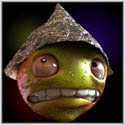




 Yes, it's like a lava lamp.
Yes, it's like a lava lamp.


